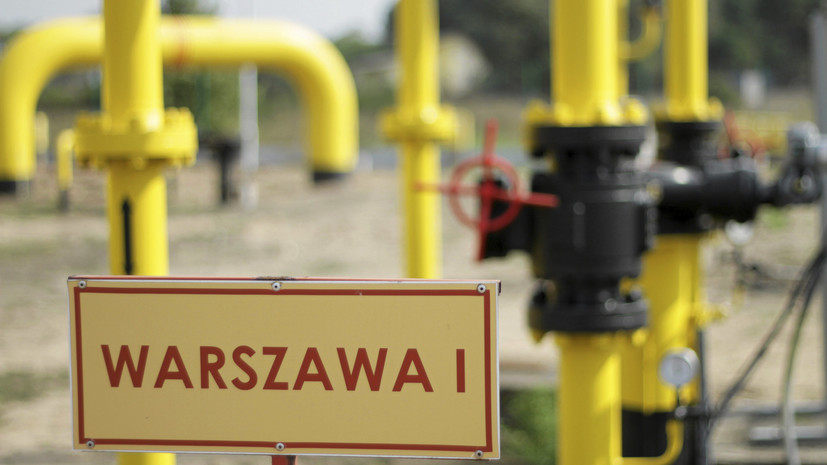Gazprom Export received an appeal from the Polish PGNiG about the possibility of lowering gas prices under the current contract.
Gazprom Export has received an appeal from the Polish side and is currently studying it, ”TASS quoted the press service of the company as saying.
Earlier, the Polish energy company PGNiG announced that it “continues efforts to revise the terms of prices for natural gas supplies under a long-term contract with Gazprom.
The report says that on October 28 PGNiG sent a letter to the Gazprom and Gazprom export companies requesting a change in the price of gas supplied in accordance with the September 25, 1996 agreement.
The Polish side expects to reduce the price "so that the current market situation can be taken into account in the process of revising the conditions."
PGNiG Chairman of the Board Pavel Maevsky said that recently in Europe there has been an unprecedented rise in gas prices.
According to him, this situation is the basis for a downward revision of gas prices.
The Polish side is also of the opinion that the application sent to Gazprom may lead to a decrease in gas prices as early as November 1, 2021.
Recall that the long-term "Yamal Contract" was signed between Moscow and Warsaw in 1996.
In the past, Poland has also come forward with a demand for a revision of the gas price.
In particular, in 2012, PGNiG and Gazprom entered into an additional agreement, following which Warsaw received a discount, but this did not suit the Polish side.
In 2016, PGNiG filed a lawsuit in Stockholm Arbitration, insisting on a new price change.
In 2018, an interim verdict was approved, according to which Warsaw received the right to revise the gas price under the Yamal Contract.
In 2020, the arbitration ruled that the price of fuel was overstated, as a result of which Gazprom was ordered to pay the Polish side $ 1.5 billion.
In addition, in 2019 PGNiG announced that it was not going to renew the contract with Gazprom after 2022.
The head of the company, Peter Wozniak, then said that the price under the contract was overstated.
Recall that since the beginning of 2021, gas prices in Europe have increased several times, fixing at about $ 1,000 per 1,000 cubic meters.
m. During the autumn trading, the price of fuel in the short term approached the level of $ 2 thousand per 1,000 cubic meters.
m.
Also on russian.rt.com Polish Prime Minister blamed the rise in gas prices on Germany
Igor Yushkov, an expert at the Financial University under the Russian government, a leading analyst at the National Energy Security Fund, in an interview with RT, said that Poland had in the past insisted on revising the contract with Russia so that the gas price would be tied to the gas price on the spot.
“And now, when this gas on the spot has risen in price, the Poles are beginning to be indignant and say:“ No, no, we do not like this pricing and this price ”.
Why does Gazprom have to change something?
You yourself insisted that the spot price is fair.
Here it is now at $ 800-900.
This is a really fair price.
In Europe, the shortage of gas, LNG is gone, etc.
But this is the price for the whole of Europe, ”Yushkov said.
At the same time, he admitted that in the event of litigation, the issue of the gas price calculation formula chosen within the framework of the contract should be considered.
“For example, in the past 2020, it allowed you to buy gas very cheaply, and now, in fact, there is some kind of compensation.
If we calculate the average price for 2020 and 2021, then it will be standard and will fit into the average price of previous years.
Last year you saved, and this year you spent, this is the spot market, ”he explained.
Commenting on the situation on the gas market as a whole, Deputy Director General of the Institute of National Energy Alexander Frolov noted that the current events are based on the global shortage of supply against the background of growing demand.
“In the EU, the current situation is exacerbated by the fact that 12 years ago the EU began to insist on revising long-term contracts for the supply of gas in order to abandon the oil peg in price determination in favor of pegging to spot quotations.
That is, if in Asia the oil peg provides about 75% of the volumes supplied to these regions, then in Europe the price of almost 100% of gas depends on spot quotations, "the expert explained in an interview with RT.

